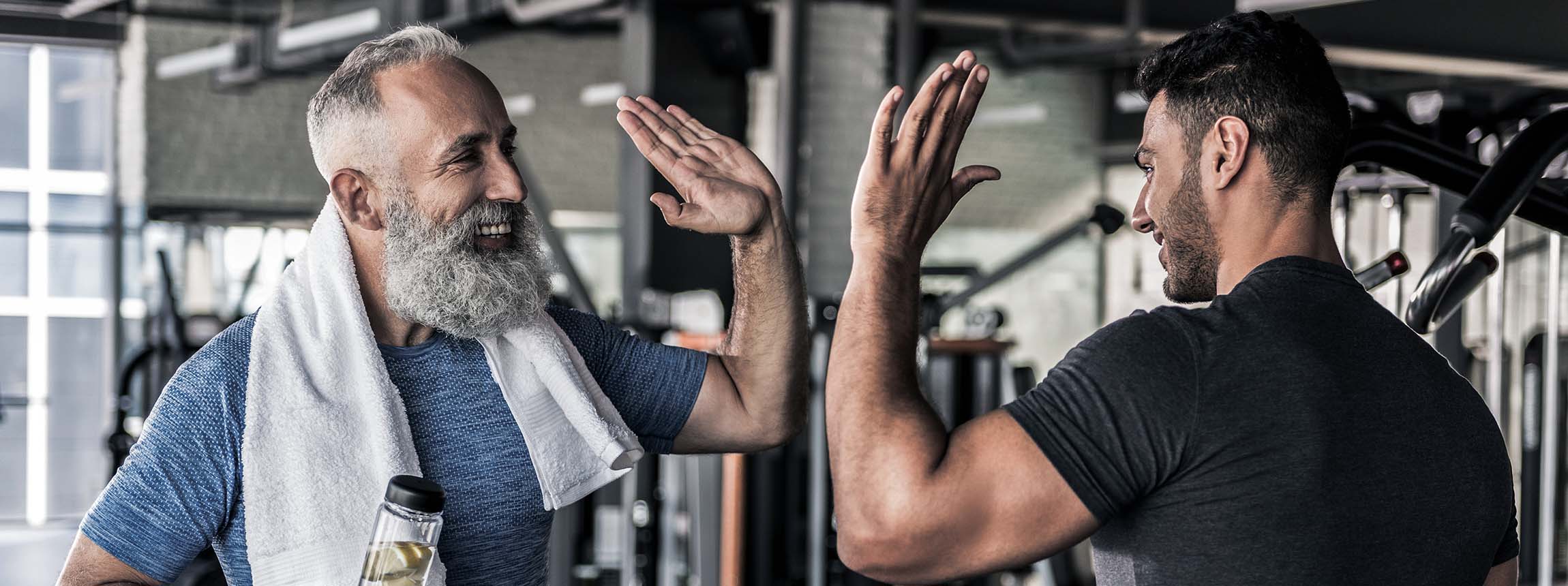Social anxiety and mental health disorders weigh heavy on men’s shoulders, now a new Gym-Clusivity Study reveals that 1 in 6 male gym-goers are combatting wellbeing struggles and primarily attend the gym to socialise.
In the past year, Google trends also show a 41% rise in searches for “group gym classes” indicating a growing interest in social fitness activities.
Gyms can offer a supportive community of like-minded individuals, gradually building confidence through goal setting and reducing anxiety through exposure to a social environment.
Body image pressures: Why men need a healthy place to hang out
OriGym’s study found that men were more likely to attend the gym than women (70% compared to 60% of women).
While men were more likely to attend the gym to socialise (15% compared to 12% of women) and meet like-minded people (10% compared to 7% of women).
- A third of men feel body image pressures
Additionally, the study found that a third of men feel pressured by beauty standards, leading them to modify their diet and desire to build muscle.
These findings emphasise the need for a positive and inclusive gym culture that welcomes and accepts individuals of all body types.
- Need for community: Suicide rates are higher among men
This sense of community could be integral for boosting men’s mental health, especially when the suicide rate among men is nearly 15% higher than among women, according to the ONS.
Going to the gym can provide men with a healthy outlet for stress, a sense of accomplishment, opportunities to socialise and showcase positive role modelling
- Men experience more loneliness
A study published about gender and social isolation across the life course has found that boys and men experience more social isolation than girls and women.
Generally speaking, women are stereotypically known for nurturing friendships with social plans and meet-ups. Some would argue that women have more opportunities to meet new friends via clubs, work, school playgrounds, mother and baby meet-ups and classes.
- Men have limited ‘healthy’ settings to hang out
Generally, men tend to socialise in groups, with a focus on doing an activity like a game, a sport or in a social setting like a pub. For centuries, the pub has been the social hub for men to hang out, relax and socialise.
In particular, a 2020 YouGov study found that men missed going to the pub more than women during the pandemic by 35% compared to women’s 21%.
Cultural expectations and norms associated with masculinity have often left men struggling to deal with their emotions. With limited places to socialise, men are often restricted to where they can interact in a healthy setting – this could be why many are choosing the gym as a new meeting place.
Experts explain why there has been a positive shift in men’s role in the fitness industry
In the last few years, the fitness industry has implemented ways to become more inclusive. Although the gym can often be seen as a place which harbours toxic signs of traditional masculinity, men’s mental health charity MANUP? revealed the fitness landscape is changing for the better.
Dan Somers, CEO & Founder of MANUP? said: “[In my opinion] gym culture is no more toxic than any male-dominated workplace.
“From my experience, some of the more high street gyms seem to have issues, mates egging each other on and peering on women, etc. But recently, I’m getting feedback that it’s slowing down because, quite simply, it’s not being tolerated and is being called out more!”
He adds: “I’ve spoken with powerlifters, fitness coaches, boxers etc and rarely see anything ‘toxic’, I’m personally seeing a lot of change.”
He added: “In the powerlifter, boxing, and, I guess, semi-professional ‘gym world’, I see the toxic side of masculinity being pushed out, and for quite some time. The conversations are now being centred more around mental health.”
Graeme Hinde, founder of LFXWorld – a fitness events network agrees that there has been a positive shift in men’s gym culture.
“I think the pandemic was the game changer for men’s mental health. The lockdown enabled a lot of men to start exercising and going on daily walks – I think they’d forgotten just how good physical activity made them feel mentally.
“When the second lockdown hit, men struggled a lot more because the weather during winter prevented them from getting out and exercising as much.”
Graeme said he has noticed more women engaging with equipment in typically male-dominated areas of the gym, with more women choosing to focus on weightlifting and strength exercises.
“In my opinion, I think that has given men an opportunity to share these often male-dominated spaces and become more respectful in the way they train in these areas. There’s still a long way to go but we’re definitely on the right track as an industry.”
Graeme added: “I think men in the fitness space have become a lot more open when it comes to talking about their feelings. It never used to be like that – particularly in fitness, men didn’t speak about how they felt.”
Instead of harbouring a culture of toxic masculinity, the gym can provide positive role models for healthy masculinity, as men can see other men setting goals, working hard, and taking care of their bodies in a healthy way.
Methodology: The full Gym-clusivity Study can be found here: origympersonaltrainercourses.co.uk/blog
